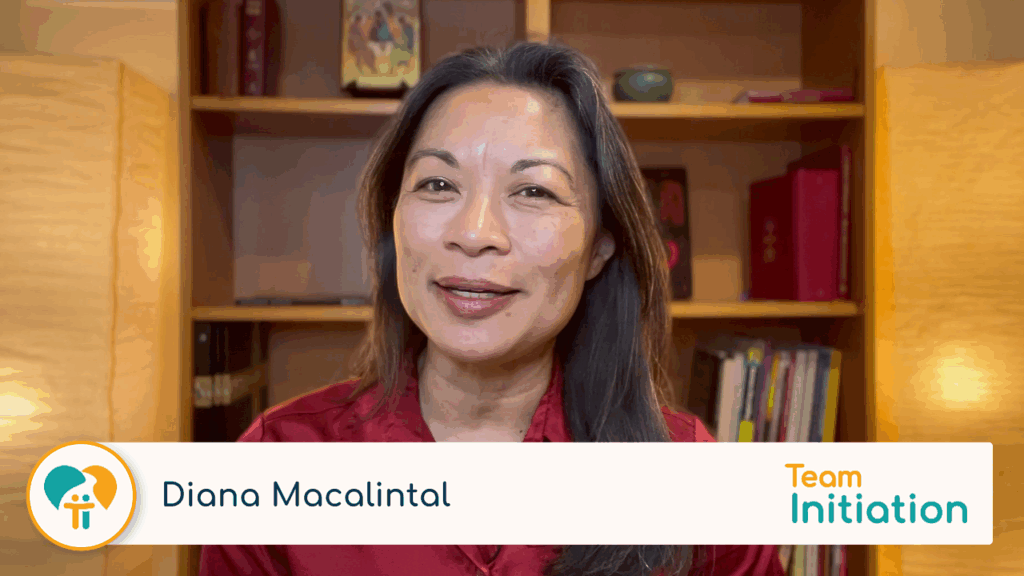 As we prepare for the new translation of the initiation rites, every parish is going to be challenged with developing a catechumenal culture. We have already looked at why that is important and what the church means by a catechumenal culture. In this article, we’ll look at how a catechumenal culture is created in a parish.
As we prepare for the new translation of the initiation rites, every parish is going to be challenged with developing a catechumenal culture. We have already looked at why that is important and what the church means by a catechumenal culture. In this article, we’ll look at how a catechumenal culture is created in a parish.
We should note that this is not new. The current translation of the Rite of Christian Initiation of Adults calls for a renewal of our parish culture. However, that vision has almost universally been set aside in favor of implementing an academic, school model of information delivery. That is a bit like giving engaged couples a class on the theology of Christian marriage without ever training them how to live as a Christian married couple.

Call for a pastoral conversion
According Archbishop Rino Fisichella, president of the Pontifical Council for Promoting New Evangelization, parishes that are defaulting to a school model for the catechumenate need to undergo “a ‘pastoral conversion’ in order to free catechesis from some chokeholds that prevent its effectiveness.” (Press Conference to present the Directory for Catechesis).
The conversion parishes need to undergo is one that provides for catechumens “an intimate knowledge of the mystery of salvation” (OCIA 75.1). This is different from a knowledge about the facts of salvation or, as Pope Francis said, “the disjointed transmission of a multitude of doctrines to be insistently imposed” (Joy of the Gospel, 35).
To teach catechumens how to live the mystery of faith, they need to be immersed into a community of missionary disciples who live the mystery of faith. A parish that is living the mystery of faith is by its very nature training the catechumens to live the Christian life in four ways: through the Logos, the living word of God; through participation in a loving community of disciples; through the liturgical prayer and worship of the church; and through apostolic witness (see RCIA/OCIA 75).
Word
The initiation rites say that catechumens are formed by the living word of God, suited to the liturgical year, grounded in a suitable knowledge of dogmas and precepts and also an intimate knowledge of the mystery of salvation (see RCIA/OCIA 75.1).
Community
In addition, the catechumens grow in faith by learning from and supporting one another, specifically through prayer, witnessing to the faith, seeing Christ in all things, following the inspiration of the Holy Spirit, and showing mercy and love to our neighbor (see RCIA/OCIA 75.2).
Worship
Perhaps one of the most overlooked places of formation in our parishes is the liturgy. Liturgy is thought of as separate from catechesis. However, the source and summit of the Christian community is our full, conscious, and active participation in the liturgy of the church. Recently, future Cardinal Arthur Roche, Prefect of the Vatican’s Dicastery for Divine Worship and the Discipline of the Sacraments said “the Eucharist itself brings with it the doctrine of the Church.…when you go to Mass, you’re receiving the doctrine of the Church” (A conversation with future Cardinal Roche, Prefect of Divine Liturgy, Sacraments).
Witness
Finally, as a community of missionary disciples, we are always on mission, actively engaged in evangelization (our “why”) and the building up of the church by the testimony of our lives and our profession of faith. On this point, Pope Francis asks: “But to whom should she go first?”
When we read the Gospel we find a clear indication: not so much our friends and wealthy neighbors, but above all the poor and the sick, those who are usually despised and overlooked, “those who cannot repay you” (Lk 14:14). There can be no room for doubt or for explanations which weaken so clear a message. Today and always, “the poor are the privileged recipients of the Gospel” and the fact that it is freely preached to them is a sign of the kingdom that Jesus came to establish. We have to state, without mincing words, that there is an inseparable bond between our faith and the poor. May we never abandon them. (Joy of the Gospel, 48)
And so our catechumens, who are missionary-disciples-in-training, should be evangelizing from the moment they themselves are evangelized, just as the Samaritan Woman did. The Order of Christian Initiation of Adults puts it this way:
Since the life of the Church is apostolic, catechumens too should learn to cooperate actively in evangelization and the building up of the Church by the testimony of their life and their profession of faith. (75.4)
Summarizing our challenge
Our challenge, as we prepare for the new translation, is not going to be about doing new things. It is going to be about doing old things, ancient things, that Christians have done since the time of the apostles.
The vision of the church, which is communicated but unrealized in the current translation of the Rite of Christian Initiation of Adults, is that our parishes would be communities that are deeply embracing the mystery of Christ and living that mystery in four compelling ways: through the living word of God, through the life the Christian community, through the liturgy of the church, and through active apostolic witness.
If we do these four things, which are deeply grounded in our tradition, we will have a vibrant catechumenal culture that will show the catechumens clearly what it means to be Catholic and train them to live the mystery of faith.
Your turn
How are these four modes of missionary discipleship present in your community? Share your thoughts in the comments below. What vision for the church is your parish sharing?


















